Undiagnosed burnout and depression is widespread within surgical communities in developed countries. [1, 2] Adequate working conditions—including appropriate workload, satisfactory workplace organisation, and sufficient illness recovery opportunity—are crucial to ensuring the delivery of high quality care, but job stressors, insufficient resource, and the deteriorating mental health of surgeons in Germany are still going unnoticed. [3] Such adverse workplace conditions are not only major risk factors for individual health impairment, but also contribute to error rates and medical malpractice; the situation is no longer acceptable.
Time pressures and concentration requirements are task-inherent, irrespective of surgical discipline. [4] However, hierarchical positions and hospital settings play a part when it comes to goal uncertainty (when one is confronted with conflicting instructions or does not know how tasks can be accomplished) and performance constraint (when workplace organisation and equipment is inadequate). For example, surgeons at university hospitals, and assistant physicians (the term for surgeons in training in Germany) across all hospital settings demonstrate the highest burnout risks. [4]
Assistant physicians report high levels of goal uncertainty, performance constraint, and emotional exhaustion (a core component of burnout), as well as low levels of job satisfaction and control.
Surgeons at larger medical centres (university hospitals, tertiary hospitals, etc) also experience high levels of goal uncertainty and performance constraint. Additionally, at larger centres there are fewer opportunities for psychological, social, and organisational support—all of which are crucial to achieving work goals, reducing the physiological and psychological impact of job stressors, and stimulating personal growth, learning, and development.
Supportive colleagues and adequate supervisor feedback increase the likelihood of successfully achieving one’s work goals. [5] While we would like to strongly encourage all health care systems to increase assistant physician supervision time we are sceptical about this happening any time soon, especially if economic pressures remain as high as they are currently.
We can, however, start to address the burnout risk in German surgeons by minimising avoidable goal uncertainty and performance constraint. This will require concerted effort by everyone involved in the health care system; fundamentally, the system level within healthcare needs a major redesign. [6]
 Marcel Kern is a PhD candidate and research fellow in the Division of Work & Organizational Psychology at Goethe-University, Frankfurt. His research includes the positive and negative effects of job stressors and resources, occupational stress and well-being, emotion work and job analysis.
Marcel Kern is a PhD candidate and research fellow in the Division of Work & Organizational Psychology at Goethe-University, Frankfurt. His research includes the positive and negative effects of job stressors and resources, occupational stress and well-being, emotion work and job analysis.
Competing interests: None
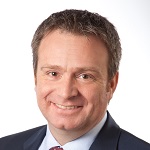 Alexander Buia is a doctor of medicine at the Asklepios Klinik Langen Clinic for General, Visceral and Thoracic Surgery, Langen
Alexander Buia is a doctor of medicine at the Asklepios Klinik Langen Clinic for General, Visceral and Thoracic Surgery, Langen
Competing interests: None
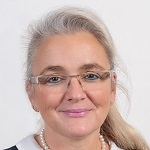 Carolin Tonus is a professor at the Asklepios Klinik St. Georg, Clinic for General and Visceral Surgery, Hamburg
Carolin Tonus is a professor at the Asklepios Klinik St. Georg, Clinic for General and Visceral Surgery, Hamburg
Competing interests: None
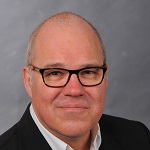 Thomas Friedrich Weigel is a doctor of medicine at the Heilig-Geist-Hospital, Clinic for General and Visceral Surgery, Bingen
Thomas Friedrich Weigel is a doctor of medicine at the Heilig-Geist-Hospital, Clinic for General and Visceral Surgery, Bingen
Competing interests: None
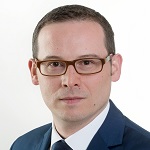 Ronny Dittmar was a doctor at the Professional Association of German Surgeons, Berlin. He died on 26 February 2019.
Ronny Dittmar was a doctor at the Professional Association of German Surgeons, Berlin. He died on 26 February 2019.
Competing interests: None
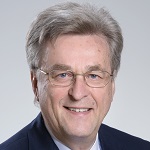 Ernst Hanisch is a professor at the Asklepios Klinik Langen Clinic for General, Visceral and Thoracic Surgery, Langen
Ernst Hanisch is a professor at the Asklepios Klinik Langen Clinic for General, Visceral and Thoracic Surgery, Langen
Competing interests: None
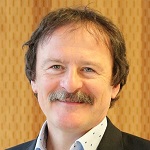 Dieter Zapf is a professor Work & Organizational Psychology at the Goethe-University, Frankfurt
Dieter Zapf is a professor Work & Organizational Psychology at the Goethe-University, Frankfurt
Competing interests: None
Credit for Ronny Dittmar’s photograph: R.Sablotny
References
- DeCaporale-Ryan L, Sakran J V., Grant SB, Alseidi A, Rosenberg T, Goldberg RF, et al. The undiagnosed pandemic: Burnout and depression within the surgical community. Curr Probl Surg. 2017; 54:453-502
- Wright AA, Katz IT. Beyond Burnout — Redesigning Care to Restore Meaning and Sanity for Physicians. N Engl J Med. 2018 Jan 25;378(4):309–11.
- Wallace JE, Lemaire JB, Ghali WA. Physician wellness: a missing quality indicator. Lancet. 2009; 374:1714-1721
- Kern M, Buia A, Tonus C, Weigel TF, Dittmar R, Hanisch E, et al.Psychological stressors, resources and well-being of surgeons in Germany. A cross-sectional study. Chirurg. 2019;https://doi.org/10.1007/s00104-018-0780-5
- Bakker AB, Demerouti E. The Job Demands‐Resources model: State of the art. J Manag Psychol. 2007 Apr 3;22(3):309–28.
- Lemaire JB, Wallace JE. Burnout among doctors. BMJ. 2017 Jul 14;358:j3360.
